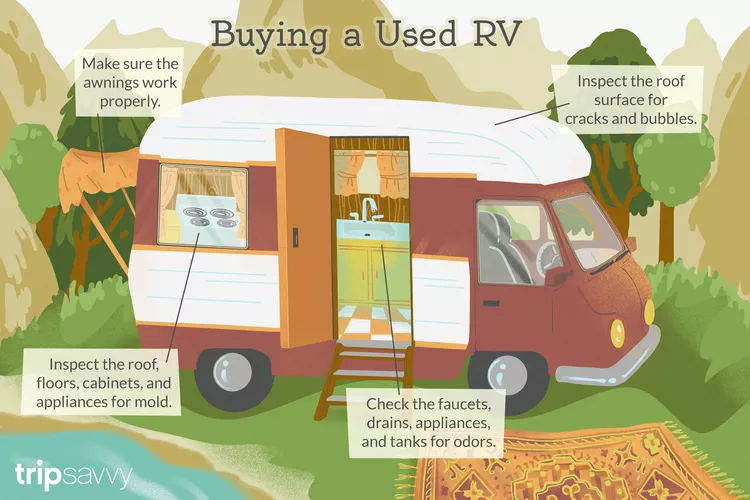Summary
Buying used is one of the most challenging decisions many RVers face, particularly for first-time owners aiming to save money for road trips. It is essential to evaluate the costs and determine what fits within your budget while ensuring a used RV is in good condition. However, the abundance of options can make this decision overwhelming.
A used RV serves as an excellent way to experience the joys of travel with your family. To avoid falling victim to a questionable dealer or seller, utilize our checklist to ensure the RV you choose is in working order before making your purchase.
Things to Lookout for When Buying
Conduct a thorough interior and exterior walkthrough of the RV independently. It is crucial to inspect the vehicle without the dealer or owner present, as they may inadvertently distract you from potential issues. By doing this alone, you can assess aspects you might overlook otherwise.
Never buy a used travel trailer or RV without performing a comprehensive visual inspection. Avoid purchasing sight unseen!
Look for These 5 Things When Inspecting
When inspecting, be vigilant about the following aspects:
- Odors: Check for unusual smells, especially near water sources or appliances. Ensure you inspect drains, tanks, and undercarriage storage for lingering odors.
- Mold: Inspect corners of the roof or laminate floors for mold. Examine every corner of the RV, seams, and creases.
- Leaks: Look for signs of leaks, often found in corners of carpeting, bathrooms, and around appliances.
- Awnings: Verify that the awnings function properly, as repairs can be costly depending on their condition.
- Roof: Inspect the roof for cracks, bubbles, or paint splitting, as poor maintenance may require costly replacements.
What Should You Do If You Find Issues?
Identifying issues from the inspection list does not inherently mean the RV is a poor investment. There are various reasons why a used RV may be less expensive than a new one, and the issues discovered may contribute to that price drop. Assess the cost of repairs and determine whether accepting the RV as is and tackling the repair work gradually is feasible.
If you encounter multiple concerns and the asking price seems high, utilize negotiation to your advantage. In some cases, the total costs of repairs combined with the purchase price for the used travel trailer or RV may exceed your budgetary limits, leading to a financial loss rather than a smart investment.
Request a complete service record for the RV. A reputable seller should be willing to provide this documentation, which can reveal the extent of past repairs. If they hesitate, approach with caution as existing issues may arise down the line.
Pro Tip: Ensure the vehicle identification number (VIN) on the RV matches the paperwork. A discrepancy may indicate problems with the service history.
Inspect the engine oil for burnt smells as a unique way to gauge engine condition. A trustworthy seller should have no problem allowing you to do this.
Be on the lookout for rust both inside and outside the RV, particularly on the frame. Rust can lead to extensive damage, making it a costly and undesirable issue to manage, regardless of the RV’s initial price.
Buyer Beware
Purchasing a used travel trailer or RV comes with the inherent risk that you may incur significant expenses should unforeseen issues arise. When buying from an individual rather than a dealer, you often accept the RV as is, which means taking on all liabilities post-purchase. Without warranties, you assume responsibility for any complications that may arise.
Owning an RV that has hidden problems or requires more repairs than anticipated won’t save you money. Therefore, it is crucial to conduct thorough research, perform comprehensive inspections, and have all your questions answered before making the final decision on a used RV purchase.





